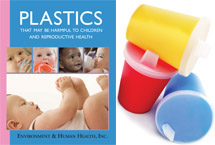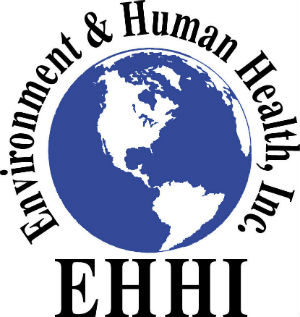The Plastics Problem
Plastics that May Be Harmful to Children
and Reproductive Health


Plastics: 12 Steps to Reduce Use
Environment and Human Health, Inc.'s brochure outlines 12 ways to address the plastic epidemic.
Download full text of brochure
News and Information about Plastics
Plastics of Particular Concern: BPA and DEHP
Nearly 100 billion pounds of plastic are produced in the United States each year. Plastics are now heavily used in food and beverage packaging, building products, electrical wiring, vehicles, furniture, toys, and medical devices. Plastics now comprise nearly 70% of the synthetic chemical industry in the nation. EHHI's report focuses on two plastic ingredients — bisphenol A (BPA) and Di(2-ethylhexyl) phthalate (DEHP).
Bisphenol A — Toxic Plastics Chemical in Cannned Food
BPA Still a Favorite Among Canned Good Brands
BPA Alternative Disrupts Normal Brain-Cell Growth, Is Tied to Hyperactivity, Study Says
The Estrogenic Endocrine-Disrupting Chemical Bisphenol A (BPA) and Obesity
Pervasive Threat: The Danger of in utero BPA Exposure
Phthalates Potentially Alter Levels of a Pregnancy Hormone that Influences Sex Development
Do Our Bodies Safely Break Down BPA? Fat Chance, Study Suggests
Hyperactivity in Children Linked to Plastic Additive, BPA
BPA Still a Favorite Among Canned Good Brands
BPA Alternative Disrupts Normal Brain-Cell Growth, Is Tied to Hyperactivity, Study Says
